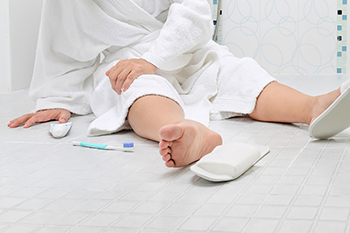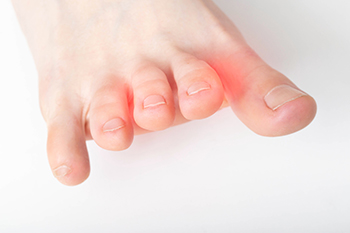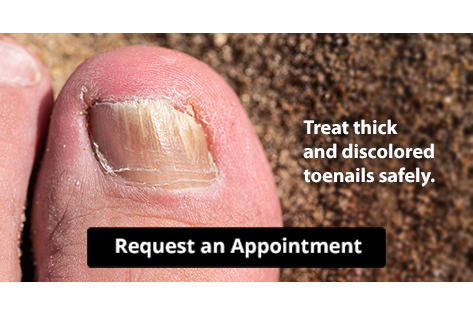Connect With Us
Blog
Items filtered by date: September 2024
Practical Tips for Senior Fall Prevention

Falls among seniors are a significant concern, often resulting from a combination of factors. Common causes include muscle weakness, poor balance, vision problems, and environmental hazards like clutter or uneven floors. Medication side effects and medical conditions such as arthritis can also contribute to fall risk. To prevent falls, it is important to implement several practical strategies. Ensure the home environment is safe by removing trip hazards, installing grab bars, and improving lighting. Encourage regular exercise to enhance strength and balance like walking or specialized fall prevention classes. Regular eye exams and reviewing medications can also help address underlying issues. If you have injured your foot or ankle from falling, it is suggested that you consult a podiatrist who can treat various conditions.
Preventing falls among the elderly is very important. If you are older and have fallen or fear that you are prone to falling, consult with one of our podiatrists from Save Your Soles. our doctors will assess your condition and provide you with quality advice and care.
Every 11 seconds, an elderly American is being treated in an emergency room for a fall related injury. Falls are the leading cause of head and hip injuries for those 65 and older. Due to decreases in strength, balance, senses, and lack of awareness, elderly persons are very susceptible to falling. Thankfully, there are a number of things older persons can do to prevent falls.
How to Prevent Falls
Some effective methods that older persons can do to prevent falls include:
- Enrolling in strength and balance exercise program to increase balance and strength
- Periodically having your sight and hearing checked
- Discuss any medications you have with a doctor to see if it increases the risk of falling
- Clearing the house of falling hazards and installing devices like grab bars and railings
- Utilizing a walker or cane
- Wearing shoes that provide good support and cushioning
- Talking to family members about falling and increasing awareness
Falling can be a traumatic and embarrassing experience for elderly persons; this can make them less willing to leave the house, and less willing to talk to someone about their fears of falling. Doing such things, however, will increase the likelihood of tripping or losing one’s balance. Knowing the causes of falling and how to prevent them is the best way to mitigate the risk of serious injury.
If you have any questions, please feel free to contact our offices located in Abington and Willow Grove, PA . We offer the newest diagnostic and treatment technologies for all your foot care needs.
Causes and Relief of Foot Neuromas

A neuroma in the foot known as Morton’s neuroma is a painful condition that occurs when the tissue surrounding one of the nerves leading to your toes thickens. This happens between the third and fourth toes and can feel like you are standing on a pebble or have a fold in your sock. Symptoms include sharp, burning pain, tingling, or numbness in the affected area. Neuromas are often caused by repetitive stress or irritation, typically due to wearing tight shoes or high heels, which compress the nerve. Relief options vary depending on the severity of the condition and may include changing footwear or using orthotics to relieve pressure. In more severe cases, corticosteroid injections or surgery to remove the affected nerve may be necessary. If you have foot pain that seems like a neuroma, it is suggested that you consult a podiatrist for a proper diagnosis and to prevent the condition from worsening.
Morton’s neuroma is a very uncomfortable condition to live with. If you think you have Morton’s neuroma, contact one of our podiatrists of Save Your Soles. our doctors will attend to all of your foot care needs and answer any of your related questions.
Morton’s Neuroma
Morton's neuroma is a painful foot condition that commonly affects the areas between the second and third or third and fourth toe, although other areas of the foot are also susceptible. Morton’s neuroma is caused by an inflamed nerve in the foot that is being squeezed and aggravated by surrounding bones.
What Increases the Chances of Having Morton’s Neuroma?
- Ill-fitting high heels or shoes that add pressure to the toe or foot
- Jogging, running or any sport that involves constant impact to the foot
- Flat feet, bunions, and any other foot deformities
Morton’s neuroma is a very treatable condition. Orthotics and shoe inserts can often be used to alleviate the pain on the forefront of the feet. In more severe cases, corticosteroids can also be prescribed. In order to figure out the best treatment for your neuroma, it’s recommended to seek the care of a podiatrist who can diagnose your condition and provide different treatment options.
If you have any questions, please feel free to contact our offices located in Abington and Willow Grove, PA . We offer the newest diagnostic and treatment technologies for all your foot care needs.
Stop Your Toenail Fungus
Babies Can Get Ingrown Toenails

Ingrown toenails in babies occur when the edge of the nail grows into the surrounding skin, causing redness, swelling, and sometimes pain. This can happen due to improper nail trimming, wearing tight socks or shoes, or even a natural tendency for the nails to curve as they grow. To manage an ingrown toenail in your baby, soak the affected foot in warm, soapy water for 10 to 15 minutes to soften the nail and skin. After soaking, gently massage the skin away from the nail. Avoid tight footwear, and keep the nails trimmed straight across without cutting too short. If you notice signs of infection, such as increased redness, warmth, or discharge, or if the ingrown nail does not improve with mild care, it is suggested that you schedule an appointment with a podiatrist for a more targeted treatment method.
Ingrown toenails may initially present themselves as a minor discomfort, but they may progress into an infection in the skin without proper treatment. For more information about ingrown toenails, contact one of our podiatrists of Save Your Soles. our doctors can provide the care you need to keep you pain-free and on your feet.
Ingrown Toenails
Ingrown toenails are caused when the corner or side of a toenail grows into the soft flesh surrounding it. They often result in redness, swelling, pain, and in some cases, infection. This condition typically affects the big toe and may recur if it is not treated properly.
Causes
- Improper toenail trimming
- Genetics
- Improper shoe fitting
- Injury from pedicures or nail picking
- Abnormal gait
- Poor hygiene
You are more likely to develop an ingrown toenail if you are obese, have diabetes, arthritis, or have any fungal infection in your nails. Additionally, people who have foot or toe deformities are at a higher risk of developing an ingrown toenail.
Symptoms
Some symptoms of ingrown toenails are redness, swelling, and pain. In rare cases, there may be a yellowish drainage coming from the nail.
Treatment
Ignoring an ingrown toenail can have serious complications. Infections of the nail border can progress to a deeper soft-tissue infection, which can then turn into a bone infection. You should always speak with your podiatrist if you suspect you have an ingrown toenail, especially if you have diabetes or poor circulation.
If you have any questions, please feel free to contact our offices located in Abington and Willow Grove, PA . We offer the newest diagnostic and treatment technologies for all your foot care needs.

